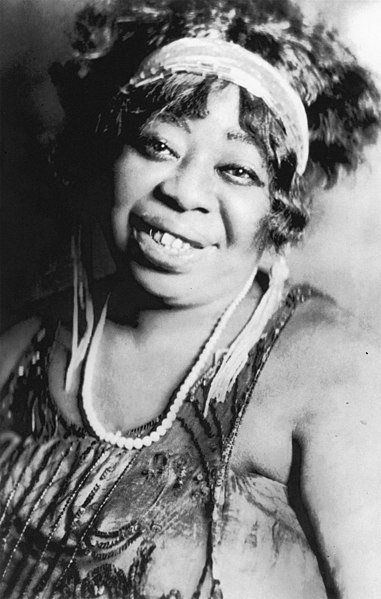Juke joint is the African American vernacular term for an informal establishment featuring music, dancing, gambling, and drinking, primarily operated by African Americans in the southeastern United States. A juke joint may also be called a "barrelhouse". The Jook was the first secular cultural arena to emerge among African American freedmen.
Exterior of a juke joint in Belle Glade, Florida, photographed by Marion Post Wolcott in 1941
Dancing at a juke joint outside Clarksdale, Mississippi, in 1939
Label of 78-rpm gramophone record of "Livery Stable Blues – Fox Trot" (1917)
Blues is a music genre and musical form that originated amongst African-Americans in the Deep South of the United States around the 1860s. Blues incorporated spirituals, work songs, field hollers, shouts, chants, and rhymed simple narrative ballads from the African-American culture. The blues form is ubiquitous in jazz, rhythm and blues, and rock and roll, and is characterized by the call-and-response pattern, the blues scale, and specific chord progressions, of which the twelve-bar blues is the most common. Blue notes, usually thirds, fifths or sevenths flattened in pitch, are also an essential part of the sound. Blues shuffles or walking bass reinforce the trance-like rhythm and form a repetitive effect known as the groove.
American blues musician Mississippi Fred McDowell in 1960
American blues singer Ma Rainey (1886–1939), the "Mother of the Blues"
Musicologist John Lomax (left) shaking hands with musician "Uncle" Rich Brown in Sumterville, Alabama
Sheet music from "Saint Louis Blues" (1914)







